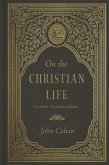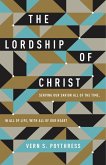A Close Look at the Complex Emotions of Christ In the search to understand the deity of Christ, Christians might overlook what the Bible reveals about his humanity. Did Jesus really feel emotions? What grieved him? What delighted him? How did Jesus-fully human and fully God-react to the world and people around him? Throughout Scripture, Jesus displays a range of emotions that can help believers understand him more intimately. In The Emotional Life of Our Lord, theologian B. B. Warfield explains how Christ's complex emotions and personality proved his humanity. It was necessary for Christ to be born in the likeness of mankind to bear their griefs, carry their sorrows, take their infirmities, and ultimately redeem their lives. In this encouraging book, readers learn to see Christ as a compassionate Savior through his sinless expressions of emotions-from righteous anger to abiding love. - An Important Look at Jesus's Humanity: Examines Christ's complex emotions and explains their significance to the gospel - Draws Readers Closer to Christ: Explains how Christ's emotions allow him to sympathize with believers today - Written by B. B. Warfield: Considered one of America's leading theologians in the 19th century - Part of the Crossway Short Classics Series
Dieser Download kann aus rechtlichen Gründen nur mit Rechnungsadresse in A, B, BG, CY, CZ, D, DK, EW, E, FIN, F, GR, H, IRL, I, LT, L, LR, M, NL, PL, P, R, S, SLO, SK ausgeliefert werden.









